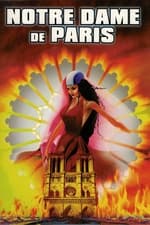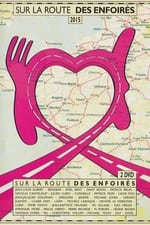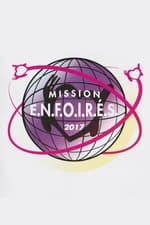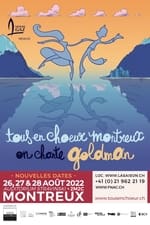Información personal
Conocido por Interpretación
Créditos conocidos 57
Sexo Masculino
Fecha de nacimiento 23 de septiembre de 1969 (54 años)
Lugar de nacimiento Marseille, Bouches-du-Rhône, France
También conocido como
- Patrick Chouchayan
Puntuación del contenido
100
¡Sí! ¡Buena pinta!
Iniciar sesión para informar de un problema
Biografía
Patrick Fiori, born Patrick Jean-François Chouchayan, 23 September 1969, is a French singer of Armenian descent.
Fiori was born to a French-Armenian father (Jacques Chouchayan) and a Corsican mother (Marie Antoinette Fiori) in Marseille, France. His father's family were escapees of the Armenian genocide. He was born in a family of five siblings. He spent part of his childhood in Marseille south of France and part in Ajaccio in Corsica. He started music at the age of 12 in 1981 thanks to encouragement from Franck Fernandel, who offered him a role in the musical La Légende des santonniers. In 1985, at the age of 16, he recorded his first song "Stéphanie" with financing from his parents followed by other recordings like "Dans ton regard" and "Le Cœur à fleur d'amour".
Taking part in Léon Zitrone's show Les Habits du dimanche gave him more exposure. In 1987 he opened for singer Gilbert Montagné for a number of shows. He later opened for other renowned artists like Michèle Torr and Barry White. In 1992 he had great success with "Au fil de l'eau" written by his childhood friend Bernard Di Domenico during the Francophonie. He won first prize during Fenouillèdes Song Contest held in Sournia, the Pyrénées-Orientales). That year's event had been sponsored by Fabienne Thibeault who encouraged him to go further in his career.
In 1993, as he became well-known with the public, at 23, the songwriters François Valéry and Marie-France Brière (director of variety and entertainment at France 2) suggested that he represent France in the 1993 Eurovision Song Contest with the song "Mama Corsica" composed by Valéry, a bilingual song mainly in French language but with some additional Corsican language lyrics. The song delivered the first rare occasion in which Corsican language was heard at the Eurovision Song Contest. The next appearance of Corsican was after 18 years with France's entry in Eurovision Song Contest 2011 with Amaury Vassili's song "Sognu" which was completely in Corsican.
On 15 May 1993, Fiori performed "Mama Corsica" representing France in the Contest held that year in Green Glens Arena in Millstreet, Ireland. He was accompanied by an orchestre led by Christian Cravero. The accompaniment also included two banjo players and two vocalists who joined him on stage throughout the song. Fiori finished fourth with a total of 121 points in between 25 nations competing. The song obtained the coveted "douze points" (12 points) from jury in Denmark and Portugal.
In 1994, Fiori released his debut album entitled Puisque c'est l'heure.
In 1995 he released the self-financed Cœur à l'envers. He also appeared in a number of variety shows notably La Chance aux chansons hosted by Pascal Sevran interpreting on an occasion "Ma vie" an original song by Alain Barrière in his presence. ...
Source: Article "Patrick Fiori" from Wikipedia in English, licensed under CC-BY-SA 3.0.
Patrick Fiori, born Patrick Jean-François Chouchayan, 23 September 1969, is a French singer of Armenian descent.
Fiori was born to a French-Armenian father (Jacques Chouchayan) and a Corsican mother (Marie Antoinette Fiori) in Marseille, France. His father's family were escapees of the Armenian genocide. He was born in a family of five siblings. He spent part of his childhood in Marseille south of France and part in Ajaccio in Corsica. He started music at the age of 12 in 1981 thanks to encouragement from Franck Fernandel, who offered him a role in the musical La Légende des santonniers. In 1985, at the age of 16, he recorded his first song "Stéphanie" with financing from his parents followed by other recordings like "Dans ton regard" and "Le Cœur à fleur d'amour".
Taking part in Léon Zitrone's show Les Habits du dimanche gave him more exposure. In 1987 he opened for singer Gilbert Montagné for a number of shows. He later opened for other renowned artists like Michèle Torr and Barry White. In 1992 he had great success with "Au fil de l'eau" written by his childhood friend Bernard Di Domenico during the Francophonie. He won first prize during Fenouillèdes Song Contest held in Sournia, the Pyrénées-Orientales). That year's event had been sponsored by Fabienne Thibeault who encouraged him to go further in his career.
In 1993, as he became well-known with the public, at 23, the songwriters François Valéry and Marie-France Brière (director of variety and entertainment at France 2) suggested that he represent France in the 1993 Eurovision Song Contest with the song "Mama Corsica" composed by Valéry, a bilingual song mainly in French language but with some additional Corsican language lyrics. The song delivered the first rare occasion in which Corsican language was heard at the Eurovision Song Contest. The next appearance of Corsican was after 18 years with France's entry in Eurovision Song Contest 2011 with Amaury Vassili's song "Sognu" which was completely in Corsican.
On 15 May 1993, Fiori performed "Mama Corsica" representing France in the Contest held that year in Green Glens Arena in Millstreet, Ireland. He was accompanied by an orchestre led by Christian Cravero. The accompaniment also included two banjo players and two vocalists who joined him on stage throughout the song. Fiori finished fourth with a total of 121 points in between 25 nations competing. The song obtained the coveted "douze points" (12 points) from jury in Denmark and Portugal.
In 1994, Fiori released his debut album entitled Puisque c'est l'heure.
In 1995 he released the self-financed Cœur à l'envers. He also appeared in a number of variety shows notably La Chance aux chansons hosted by Pascal Sevran interpreting on an occasion "Ma vie" an original song by Alain Barrière in his presence. ...
Source: Article "Patrick Fiori" from Wikipedia in English, licensed under CC-BY-SA 3.0.








